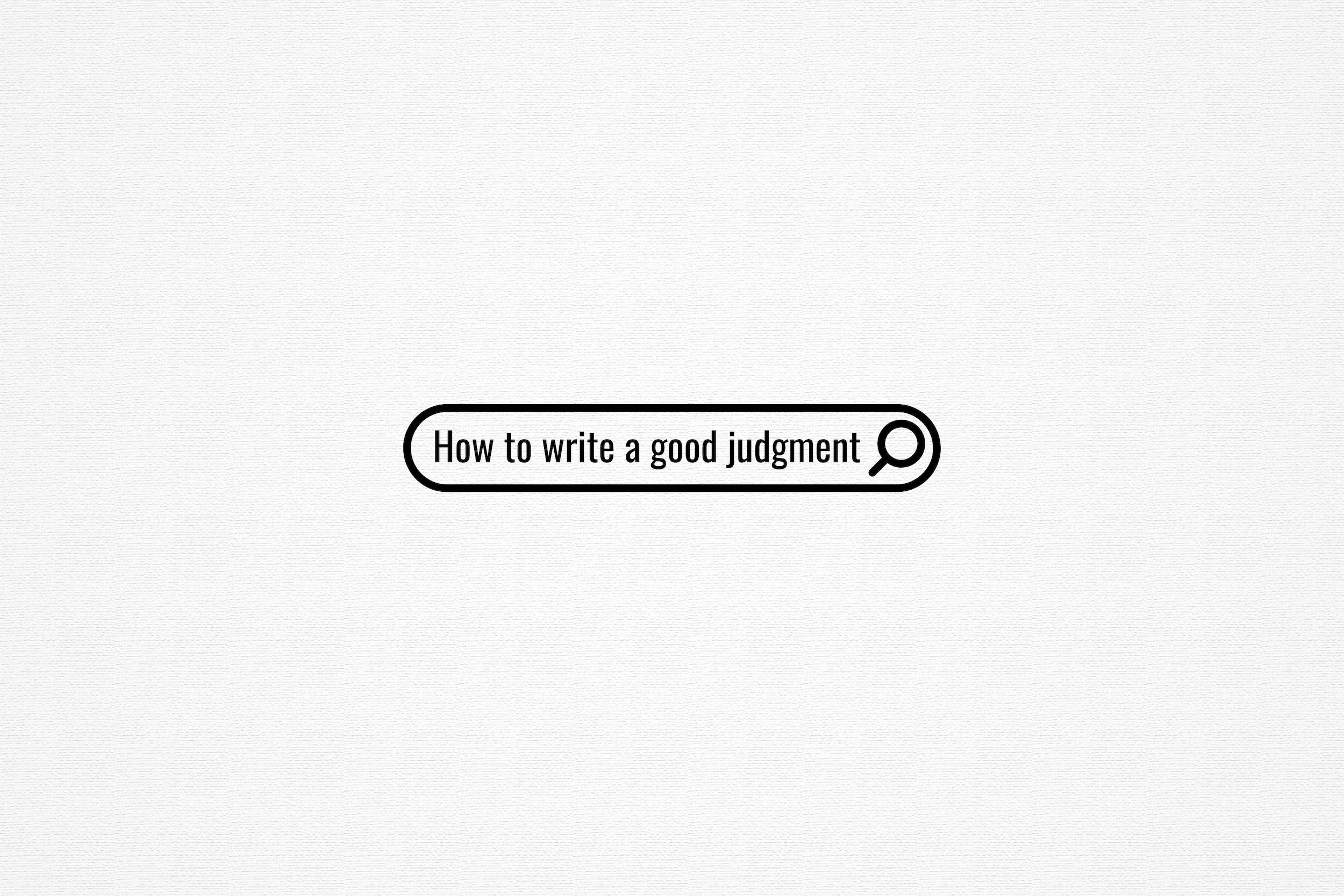Dear readers,
As previously announced, I am incredibly happy and honored to publish guest articles written by several of the world’s most renowned antitrust scholars every month of the year 2020. The one for March is authored by William E. Kovacic, Global Competition Professor of Law and Policy, George Washington University Law School; Visiting Professor, Dickson Poon School of Law, King’s College London; Non-executive Director, United Kingdom Competition and Markets Authority; former Chair, US Federal Trade Commission. In it, Bill explores the roads not taken by the Federal Trade Commission in three cases involving Google, and calls for a very specific action. I am confident that you will enjoy reading it as much as I did. Bill, thank you very much!
All the best, Thibault Schrepel
****
Roads Not Taken: The Federal Trade Commission and Google
In recent years, a significant and growing body of observers has hammered the US antitrust agencies for weak enforcement. In particular, an avalanche of articles, blog posts, books, speeches, and tweets has buried the Department of Justice (“DOJ”) and the Federal Trade Commission (“FTC”) for failing to challenge mergers and abusive practices by leading tech firms.
Prominent exhibits in the indictment of modern US federal antitrust enforcement policy are several decisions taken by the FTC regarding Google in the past fifteen years. In 2007, Google purchased Doubleclick, and in 2009 the company bought AdMob. The FTC reviewed both transactions and challenged neither.
In January 2013, the Commission closed a high-profile investigation of Google’s search practices (“Google Search”). With much public fanfare, the agency had assembling a dream team of analysts to guide the inquiry and had hired a renowned litigator to run a possible case. This activity seemed to foreshadow a significant enforcement action. Instead, the FTC folded its tent, with Google promising to amend some aspects of its conduct. In effect, the Commission revived a long-discredited practice of accepting an assurance of voluntary compliance. Scolding his colleagues for not incorporating Google’s promises in an enforceable order, Commissioner J. Thomas Rosch said the agency had promised an elephant and instead “brought forth a couple of mice.”
The FTC decisions not to prosecute in DoubleClick, AdMob, and Google Search attracted, and continue to elicit, severe criticism. The DoubleClick and AdMob episodes are said to exemplify feeble merger control and demonstrate the US system’s blindness to the competitive dangers of vertical deals. The agency’s retreat in Google Search is said to display fundamental weaknesses in the US approach to disciplining errant dominant firms.
Imagine how modern discussions about the quality of US antitrust policy would have unfolded if the FTC had attacked either the DoubleClick or AdMob transactions and had brought a Google Search monopolization case. The FTC would have staked out a position of toughness on vertical mergers, and, by launching a search case in 2013, would have been first to market (ahead of the European Commission) with a case involving the new generation of tech giants. In the global competition law arena, the US program would have become the centerpiece of the conversation about how antitrust law can address competitive problems in the emerging high tech, information services economy.
The FTC’s nonintervention in DoubleClick, AdMob, and Google Search has inspired an entirely different discussion in which, for the most part, the brand of the US enforcement system suffers badly. The most contentious debates have involved the Google Search inquiry. The closure of the Google Search matter unleashed speculation about why the FTC, after a public relations buildup that signaled intervention, took a walk. Discussion has focused on three possible explanations: (1) Based on a sound assessment of the facts and prevailing US doctrine governing dominant firm conduct, the Commission concluded it had no sustainable theory of liability, (2) The Commission had a supportable case but lost its nerve – the antitrust equivalent of what we call choking in sports, or (3) The Commission caved in to political pressure that Google brought to bear through the Congress and the White House. My interpretation is that the first of these possible explanations accurately depicts the motivation for the FTC’s decision on Google Search: the agency stood down because it believed the case lacked sufficient merit and was destined to fail in court.
In offering this view, I am no disinterested observer. My public enforcement affiliation today is with the United Kingdom’s Competition and Markets Authority, where I serve on the board as a Non-executive Director. Yet, for a number of reasons, I remain keenly interested in the perceived standing of the US antitrust agencies. I was a member of the FTC from 2006 to 2011 and was the agency’s Chair from March 2008 to March 2009. I supported the FTC’s decision not to intervene in the DoubleClick and AdMob mergers, and I was present for the early development of the Google Search investigation.
I welcome an unflinching assessment of the US antitrust system’s performance during my time at the FTC, and I have some thoughts about how to advance the debate about the Commission’s decisions in DoubleClick, AdMob, and Google Search.
More Complete Disclosure. When the European Commission closes a matter without taking action, it typically issues a detailed written explanation about why it did not intervene. US law does not oblige the DOJ or the FTC to issue closing statements. The historical custom of the US agencies generally has been not to explain decisions not to prosecute, though notable exceptions have appeared since the late 1990s. On some occasions, the agencies have issued detailed closing statements that provided valuable insights into agency decision making. On most occasions, the agencies have released no explanations for closing investigations or published largely uninformative comments. By too often saying nothing, or very little, the US agencies have missed important opportunities to improve public understanding of, and confidence in, how they formulate antitrust policy.
In Google Search, a detailed closing statement that described the FTC’s inquiry and spelled out its analysis might have gone a long way to persuade external observers that its decision was principled and not politically expedient. Such a closing statement would have made a valuable contribution to national and global discussions about the application of monopolization law to dominant platform owners. Instead, the Commission‘s closing statement in Google Search was sketchy on many key issues and, in some passages, almost incoherent – a reflection, perhaps, of the difficulty (which I fully understand from my own experience at the FTC) in trying to distill the different and often conflicting views of the Commission majority into a single document.
Doubts about the legitimacy of the FTC’s decision in Google search got worse in 2015. In the course of responding to an open records request, the FTC inadvertently released every other page of a confidential internal memorandum prepared by case handlers who worked on Google Search. The revelation of the incomplete document caused a furor by suggesting to some that the Commission had brushed aside the serious concerns of the agency’s professional staff that Google had engaged in unlawful monopolization. To this date, the Commission has declined to release the complete version of the staff memorandum or to disclose other internal records leading up to the decision not to intervene.
I think it makes sense for the FTC to reverse course on this issue and disclose the complete version of the staff memo and the internal memos prepared by heads of unit for the Commission’s deliberations in Google Search. (I am aware of the administrative law complications of taking such a step, and I acknowledge that, were I now serving as the agency’s General Counsel, which I did from 2001-2004, I might hesitate to urge the step I propose here.) Fuller disclosure would place the recommendations of the Bureau of Competition, the Bureau of Economics, and the General Counsel in the public domain. Unlike the inference of a possible infringement that one could draw from the partially revealed document prepared by the case handlers, the memos from the heads of these three units recommended that the Commission not intervene. Given the esteemed senior officials whose signatures appeared on those documents, the memos presumably supplied well-elaborated justifications for the agency to stand down. Most important, fuller disclosure of materials bearing on the decision whether to prosecute probably would go a long way to allay concerns that the FTC took a dive in the face of political pressure.
Case Reconstructions. The disclosure of the Google Search memos from the Bureau of Competition, Bureau of Economics, and General Counsel would be an important part of a broader effort to perform a retrospective review of the FTC’s decision-making process. In the first instance, this review might be conducted internally at the FTC. One element of this review would be to assemble FTC officials who participated in the decision in 2013 to close the Google Search inquiry. The internal assessment would be followed by a public iteration that engages outsiders in the analysis of the Google Search decision. For the internal and public versions of the review, central focal points for discussion would be to assess whether the agency’s decision-making process considered the right factors, whether the agency assigned the correct weight to each factor, and, most generally, how to improve the agency’s analysis of potential risks and rewards of individual cases going ahead.
In a similar way, the DoubleClick and AdMob merger episodes would be worthy candidates for reexamination. For the review of these transactions, it would be helpful to enlist participation by current and former officials from other competition agencies (such as the Competition Directorate of the European Commission) which also cleared the transactions. Again, internal review deliberations would be followed by public proceedings that sought the views of other observers and participants in the previous transactions – among them, academic researchers, advisors to the parties, company executives, those who appeared before the FTC on behalf of third parties, and representatives of advocacy groups.
I see these case reconstructions as serving several purposes. Most generally, the reconstructions can improve the competition agency’s decision-making process for the future. Much like the case studies undertaken by a university’s business department or school of public administration, case reconstructions would provide a more complete understanding of why the FTC acted as it did in the three Google matters.
Second, case reconstructions can give us another basis on which to assess how competition agencies should decide how much litigation risk to assume in individual cases and in building a portfolio of enforcement actions. This is a crucial ingredient in deciding how to evaluate agency performance – to look beyond the commonly accepted (and often misleading) criteria of case counts and won-lost records and instead focus attention on standards that would guide an agency in deciding how to measure the worth of a proposed enforcement matter and to determine whether it has the means to pursue it successfully. A good reconstruction of the FTC’s Google matters would recreate the fuller context surrounding the agency’s decisions not to intervene and thus would facilitate a more richly informed discussion about whether the agency’s decision-making calculus and assumptions were appropriate. For example, in the nine months before the FTC’s decision in late December 2007 not to challenge Google’s purchase of DoubleClick, the FTC had lost three consecutive preliminary injunction actions to block mergers in federal district court: Western Refining/Giant Industries (April 2007), Equitable Resources/Dominion (May 2007), and Whole Foods/Wild Oats (August 2007). I, for one, was reluctant to expose the agency to the institutional damage it could suffer (e.g., the further erosion of the FTC’s credibility and deterrence as a prosecutor) from a fourth straight defeat – this time in a case premised upon what, by contemporary legal standards, would have been a difficult (though not impossible) vertical theory of harm. Was this the right call? Should the Commission have taken the risk I identified? Those questions are worth a second thought. Indeed, these are good questions for any agency to ask about what it has done and what it has failed to do.
Finally, I expect the reconstructions to yield an important dividend for the legitimacy of public administration. In the FTC Google matters, I expect that case reconstructions will show that good faith effort to analyze the problem at hand, and not capitulation to political interference, has guided the FTC. This rationale for case reconstructions might be the most important of all at a time when elected officials loudly express their views about how antitrust agencies should exercise formidable law enforcement powers in specific cases.
Prof. William Kovacic
***
Recommended citation:
William E. Kovacic, Roads Not Taken: The Federal Trade Commission and Google, CONCURRENTIALISTE (Mar. 9, 2020)
Read the other guest articles over here: link








